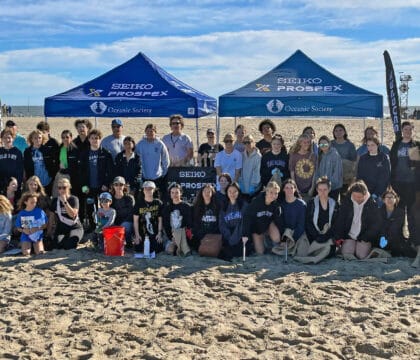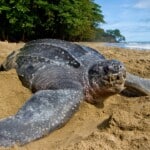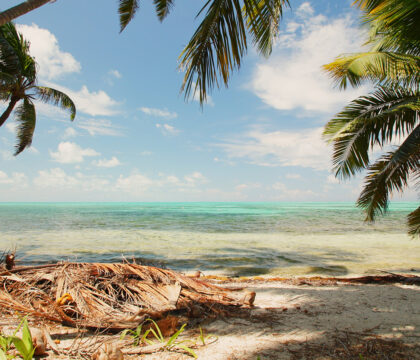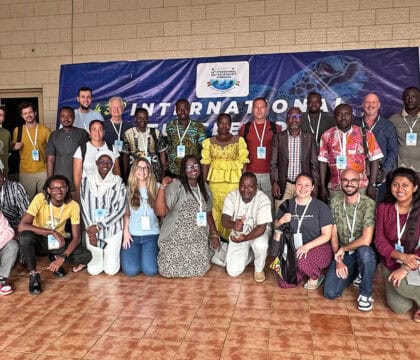July 10, 2018 • News Announcements, Program Updates
Oceanic Society recently launched Phase II of its innovative Blue Habits project which seeks to tackle ocean issues through behavior change by leveraging nature-based tourism industry
Oceanic Society, a global leader in nature-based tourism and America’s oldest non-profit organization dedicated to ocean conservation, has launched a new effort to engage travelers in making behavior changes that positively impact ocean health. The effort is part of the organization’s Blue Habits project—an innovative approach to address ocean issues at their root cause: human behavior.
By bridging the gap between public awareness of ocean issues and personal action, Oceanic Society aims to deliver measurable benefits for ocean health in the areas of pollution, sustainable seafood, and climate change. The project will initially focus on the nature-based tourism industry—a powerful yet vastly underused platform for global scale behavior change—before expanding to a broader set of consumer audiences.
“Most people assume that simply raising awareness about environmental issues is enough to make people act differently, but behavior experts know that’s not the case,” said Roderic Mast, CEO of Oceanic Society. “Our goal is to figure out how we can go beyond awareness to inspire measurable, long-term change, and to work with other travel operators and non-profits to undertake the same approach.”
Micro-plastics collected on a beach © Joe Dowling
Together with behavioral science and education experts from Stanford University’s Graduate School of Education and Woods Institute for the Environment, Oceanic Society completed a first phase of the Blue Habits program in 2016, evaluating the potential of Oceanic Society’s whale watching cruises as a venue for motivating lasting pro-ocean behavior.
Building on results and lessons learned from Phase I, the newly launched Phase II of Blue Habits aims to influence the nature-based travel industry more broadly, and has received seed funding from Booking.com’s Booking Cares Fund. In Phase II, Oceanic Society and Stanford will work together to innovate, test, and refine a proven, scalable approach to pro-ocean behavior change among nature-based tourists, and will partner with travel operators worldwide to implement that approach.
“Supporting like-minded organizations that are committed to exploring innovative solutions that contribute to the long-term sustainability of the global tourism industry is something that we’re incredibly passionate about at Booking.com. We’re proud to fund Oceanic Society’s Blue Habits project because we believe that it can lead to long-term, transformative behavioral change, with the potential to have a meaningful impact not only on how we travel, but how we live our lives on a daily basis,” said Marianne Gybels, who leads Corporate Social Responsibility at Booking.com.
An onlooking traveler snaps a close-up of passing green sea turtle © Wayne Sentman
To kickoff the project, Oceanic Society and Stanford will convene conservation and tourism stakeholders at Stanford’s acclaimed design school (the “d.school”) where design-thinking experts will lead multi-stakeholder teams in using approaches that address ocean conservation challenges as a design-and-innovation problem. Participants will rapidly adapt strategies based on real-time feedback using a design-thinking process that Stanford pioneered.
The ultimate goal of Blue Habits is to innovate, test, and refine a scalable approach to achieving pro-ocean behavior change among nature-based tourists and to promote its adoption by travel operators worldwide, thereby reaching and engaging millions of people. Oceanic Society will begin by testing and implementing Blue Habits methodologies across all of its international expeditions programs and California whale watching tours which collectively span more than 20 countries and serve more than 3,500 visitors per year.
“Through the Blue Habits project we hope to tackle the critical global challenge of ocean conservation through tourism, one of the world’s biggest industries”, said Mast. “We believe that most nature travelers and tour operators want to play a bigger role in maintaining healthy oceans. The Blue Habits project aims to give them the tools and information they need to convert that desire into meaningful daily action.”




